What is a scientist?
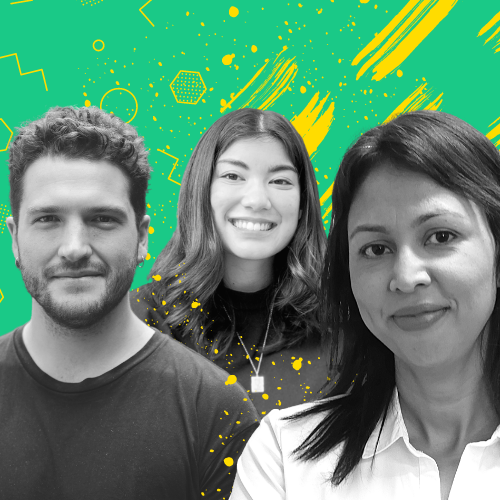
For a long time, there has been a common stereotype of scientists – you know the ones with a white male, in a white lab coat (probably a genius) mixing liquids in beakers?
The problem with stereotypes is that they tend to oversimplify and exclude: they function to reinforce misconceptions, and without being challenged, can further alienate already underrepresented populations.
What is a Scientist? is challenging those common misconceptions by resetting the lens on what a scientist’s career, journey, and background looks like.
Professor Emma Johnson, Dean of UNSW Science, believes it’s an important discussion to have.
“By challenging Australians to look beyond the lab coat and explore interests in all scientific pursuits we are encouraging a fascination with the world, and we hope to inspire a generation of scientists who impact multiple and diverse industries for the better,” she says.
Below, hear from 8 different scientists, who speak about their diverse experiences, interests and journeys – and the passion for science that unites them.
“By exploring the misconceptions scientists hear about themselves and the work they do, we are hoping to build awareness – not only that everyone can do science, but that we need people from all walks of life to support a culture of innovation.”
Meet our scientists
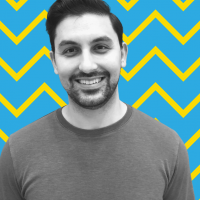
Ahmad Sultani
Ahmad Sultani - BSc ‘12
Not just ‘the numbers guy’ / Proud family man
BIO / Ahmad is a seasoned analytics leader specialised in applying innovative technologies within the audit and risk domains. After initially starting an optometry degree, Ahmad switched to focus on mathematics and statistics. After graduation, he went on to work as an analyst at Deloitte before moving to the Commonwealth Bank in 2013, where he has worked for the last 8 years. He is now Head of Analytics within the Commbank Group Audit function, where he leads a team of analysts, data scientists and engineers to automate manual processes and intelligently identify risk.
STORY / “When I first started at my job, there was this perception that I was the ‘maths guy’, that I should just sit in the back and work on numbers,” he says.
“I think scientists are often seen as back of house – particularly when it comes to being good communicators or salespeople.”
The UNSW Science alumnus majored in maths and statistics and is now Head of Analytics (Group Audit) at the Commonwealth Bank. He says he pushed past misconceptions, guided by a “professional skepticism” that was embedded within his studies.
“Scientists often get pigeon-holed by their area of study or expertise, but scientists have a skill set that makes them unique, and able to do a whole facet of different types of work,” he says.
“Overtime, I have shown there is a lot more I can offer.”
“When I decided to take on a scientific career, my family all thought your options are quite limited, as a maths student. They thought you either become a researcher or a maths teacher. But they were amazed to know that mathematicians play an incredibly important part in a lot of different organisations.”
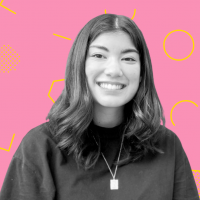
Alinta Furnell
Alinta Furnell - BAdvSc(Hons) student
Loves 70s Rock / Secret musician / Creative
BIO / Alinta is currently in her final year of a Bachelor of Advanced Science (Honours) at UNSW majoring in biotechnology and microbiology. During her studies she became heavily involved in the MedTech and biotech entrepreneurship space having received two biotech-specific scholarships, and co-founding two startups for which she has won multiple awards. Aurora MedTech, co-founded in 2019, addressed negative stigma and attitudes surrounding sexual health in young adults, like keeping up with regular sexual health checks. Her second start-up, SynBioTe, was co-founded this year, and focuses on optimization of synthetic biology.
STORY / “I’ve been to a lot of industry events. I remember being at one and having someone say to me, ‘Hey, you look like you’re in high school’.”
The UNSW biotechnology and microbiology honours student has co-founded two startups for which she was won multiple awards. Her latest, SynBioTe, is working to optimise synthetic biology.
But for Ms Furnell, the energy and optimism for her start-up has bumped up against misconceptions from within the science start-up community.
“My advice for young people who are looking to get into an industry but are a bit intimidated, is just to do it,” she says.
“Regardless of your age, you’re never too young or too old to be a scientist.”
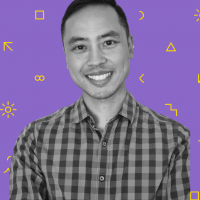
Dr Henry Chung
Henry Chung - BSc ‘07, PhD ‘12, CMPP '20
Badminton Enthusiast / Keen cyclist / Calligrapher
BIO / Henry is a Principal Medical Writer working in a medical communications agency. With regular advances in medicine, his work ensures the latest information and data on diseases and clinical trials are delivered to healthcare professionals – so they can stay on top of best practices and deliver the best care to patients. After his undergraduate degree, Henry pursued a PhD in human stem cell research and took up a postdoctoral role at the Children’s Medical Research Institute studying the development of the mouse embryonic gut. After he switched careers from academia to industry, he nurtured a passion in the ’science of communication'. He has crafted marketing and educational materials about fatal diseases like non-Hodgkin lymphomas, and even more common conditions like tension headaches.
STORY / Henry has been fascinated by nature since he was young. Now a principal medical writer at Synergy Vision, Dr Chung has fostered a lifelong passion for science.
After completing his Bachelor of Science in biotechnology and his PhD in the field of psychiatry at UNSW, he moved to industry where he faced misconceptions.
“People often think that the only career path for a scientist is research, but I don’t think that’s necessarily true,” he says.
“A lot of my friends who have studied science with me back in the day – some of them had pursued research, and a lot of them have not.”
“I think you should see science as a building block or a foundation that you can use to open up the different careers that are out there.”
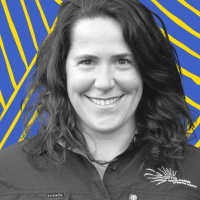
Dr Mariana Mayer Pinto
Dr Mariana Mayer Pinto - Scientia Senior Lecturer, UNSW Sydney
Crime fiction lover / Beatles fan / Lifelong beach bum
BIO / Dr Mariana Mayer Pinto is a Scientia Senior Lecturer in Marine Sciences. She is interested in developing solutions to human impacts on the marine environment. Mariana co-founded and co-leads the Living Seawalls project at the Sydney Institute of Marine Sciences, which enhances artificial structures to support marine life. Dr Mayer Pinto obtained her PhD in Marine Sciences from the University of Sydney; Master of Science in Zoology from Federal University in Rio de Janeiro; and has worked as an environmental consultant for the Gorgon Gas Project in WA.
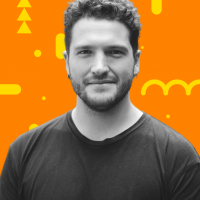
Orlando Hayes
Orlando Hayes - BEnvMgmt ‘19
Rollerblader / Enjoys 3D printing planter pots / Environmentalist
BIO / Orlando has an extensive background in ecology, having worked on a range of multi-disciplinary, forward-thinking projects that incorporate environmental and social sustainability principles. He strives to deliver regenerative solutions that redefine best practices in sustainability.
Orlando also co-founded and currently leads the social enterprise ShoutOut Australia, which connects available businesses resources to charities in need. He has appeared on podcasts like QUT Impact lab, TJ Talks, Life on Planet A, and on the Impact 100 Sydney live panel. Through his career, he hopes to foster stronger collaborations between people and the planet.
STORY / The Environmental Management alumnus says there are a couple of misconceptions about science.
“Science is a lot more creative than people think,” he says.
“Science can also often be seen as hard facts, pure, clear cut and methodical, but science is always heavily debated, and things change rapidly.”
Mr Hayes incorporates ecology and the environment in designs at global engineering firm, Mott MacDonald.
He also co-founded ShoutOut Australia, which works to pair corporate resources with charities in need.
Both roles serve Mr Hayes’ mission of creating a future where the built environment is better integrated with ecosystems and society – and require a dynamic problem-solving mindset that comes from experience in science.
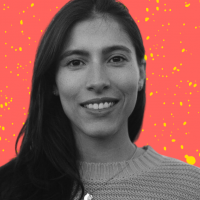
Thays Costa
Thays Costa - BDataSc ‘20
Brazilian / Passionate Yogi / Loves to dance
BIO / Thays was born in Brazil, where she studied a Bachelor of Chemical Engineering between 2013-2016. The following year, she came to Australia and continued her studies in data science, combining her passion for mathematics and computer science. During her studies, Thays was an active member of the UNSW Data Science Society (DataSoc), and participated in DataSoc’s first ever Datathon, where she placed second. In her final year of study, she interned as a Junior Data Scientist at fashion e-commerce site Hello Molly, and as a Machine Learning Engineer at Remi AI. Thays now works at Google as a Technical Solutions Engineer, where she improves the supportability of Google Cloud services.
STORY / Ms Costa’s love of science spans two continents, having studied chemical engineering in her native Brazil, and then data science at UNSW.
“Once you start (science), you get so passionate about it, you won’t be able to stop,” she says.
Now a Technical Solutions Engineer at Google, Ms Costa is keen to combine her interests in mathematics and computer science to support cloud services for customers.
Although she says there is still a visible gender gap in her field.
“In many companies that I have worked in, I was either the only woman, or in the very few percentages of women in my team,” she says.
“I strongly encourage women to apply for science roles and to study science, because it’s definitely not a field for men.”
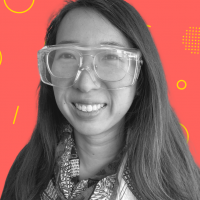
Dr Anna Wang
Dr Anna Wang - Scientia Senior Lecturer, UNSW Sydney
Indoor rock climber / Mixologist / Pet portrait artist
BIO / Dr Anna Wang is a Scientia Senior Lecturer in Chemistry, and her work spans interdisciplinary fields such as astrobiology, biophysics, and soft matter (which is anything that feels ‘squishy’ - soap bubbles, food, living things). One of the goals of her soft matter and biophysics lab is to collaborate with physicists, geologists, chemists, and biologists from around the world to try and understand how life could have started from simple chemicals. Dr Wang did her undergraduate studies in Physics at The University of Sydney; her PhD in Applied Physics at Harvard University and was a NASA Postdoctoral Program Fellow in Astrobiology at Massachusetts General Hospital.
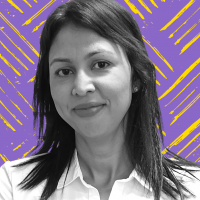
Asheeta Prasad
Dr Asheeta Prasad - Senior Lecturer, UNSW Sydney
Traveller / Passionate boxer / Skydiver
BIO / Dr Asheeta Prasad is Senior Lecturer in the School of Psychology. She leads the Asheeta Prasad Lab which is investigating the neural network of dopamine in neurological disorders, with the aim of advancing knowledge of drug addiction and Parkinson’s disease. Dr Prasad completed a Bachelor of Biomedical Science University of Western Sydney, a master’s in molecular biology at the University of Queensland and a PhD at the University of Utrecht in the Netherlands.
